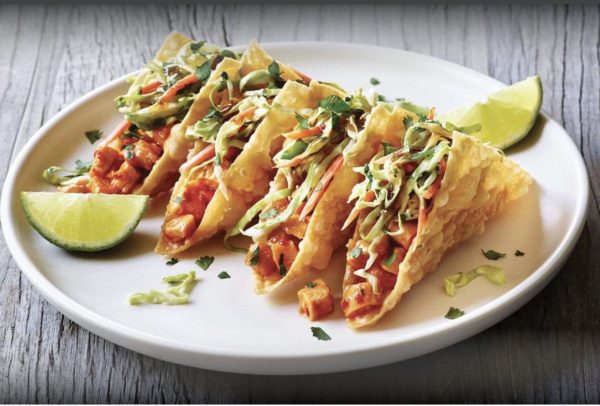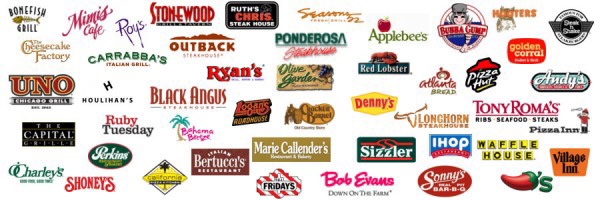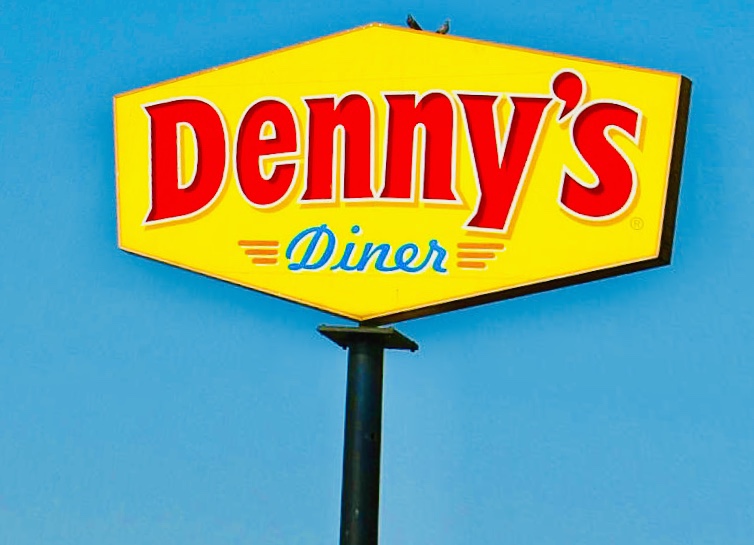I was in grade school when I first experienced the majesty of a piping hot basket of unlimited breadsticks from the Olive Garden. The bread had a pale off-white pallor, squishy and supple like the skin of a cadaver. It wasn’t a breadstick at all, not in the conventional sense, more of a cigar shaped tube of undercooked dough glistening with a sheen of garlic-scented oil that seemed to be pumped over it like movie popcorn butter (turns out it’s margarine).
Olive Garden was also one of my first encounters with Fettuccine Alfredo, an exalted delicacy for an American boy raised in the midwestern suburbs. After that, whenever I saw Alfredo sauce on the menu I never considered ordering anything else. It could arrive gluey and overwrought, but it didn’t matter I still lost myself in its lactating bosom.
As most food-illiterate American children growing up in the 80s, I wasn’t ready for the arrival of more sophisticated pasta recipes. Pizza, as far as I knew, was made in Huts. That was before my family discovered that at Little Caesars you could order one pizza and—through an some mystifying sleight of hand—they would deliver you two. I savored the waxy, burnt cheese that formed along the perimeter of its angled crust and the vaguely chemical tang that tasted like a mix of spent butane and dirty cast iron.

Now when I pass through suburban areas—having lived in New York City for over two decades—I feel a deep sadness about the state of American restaurants. Traversing county roads and freeways past the dull sameness of uninspired franchises, neighboring townships are indistinguishable from each other. There’s a deliberate pattern to their geographical placement that seems designed to make each brand universally familiar no matter what city you’re in. The Cracker Barrel peeks out from alongside the expressway ramp like a hearty welcome home; the Ruby Tuesdays flanks the mall entrance like an overweight security guard; the engine-red neon of the Texas Roadhouse awning beckons you like a rodeo clown from across the parking lot of the strip mall.
In the same way that retail empires like Target and Walmart have hastened a mass extinction event among small retail businesses across the country, independent restaurants have largely been displaced by corporate brands. Where we’ve identified underprivileged neighborhoods that suffer from “food deserts”—lacking proper access to grocery stores and fresh food sources—we’ve all but ignored the peripheral threat posed by “restaurant deserts” that exist in many of the same disadvantaged communities. We associate this problem primarily with fast food, but the same danger applies to these aspirational “fast casual” brands that advertise an elevated dining experience but rarely deliver on the promise.
The population where these chains thrive often relies on these ubiquitous brands without questioning the devastating effect they have on public health and the economy. Middle class and affluent communities are vulnerable, too. Family-owned Chinese restaurants that were once pillars of their communities have given way to places like Panda Express (2,200 locations) that have obscured the roots of Chinese cooking beyond recognition. Panera Bread (2,000 locations) has become the de facto America’s delicatessen, an ambition-less sandwich factory with no backstory. These restaurants recklessly jumble international cuisines, creating recipes like Applebee’s (1,800 locations) famous “Chicken Wonton Tacos” in ways that disrespect multiple cultural traditions on the same plate. We’re in the middle of a decades-long war on American taste buds.

Now is an opportune time to reverse the effects of the corporatization of the restaurant industry. The Coronavirus pandemic has disproportionality affected small restaurant businesses that were already struggling to compete against big chains. Americans need to demand both federal and local policies that incentivize small business and support independent restaurant owners. It’s primarily a real estate problem, where commercial landlords would rather lease to big corporations than to take risks with upstarts.
Municipalities should enact legislation to encourage landlords to partner with local entrepreneurs and to keep corporate restaurants out of their communities—much the same way that many have already outlawed big box stores. Corporations like these tend to drain resources from local communities by reinvesting profits elsewhere or returning them to shareholders through dividends and stock buybacks. The menial jobs they provide aren’t worth the collateral damage.
The Trump Adminstration’s outreach, not unexpectedly, has prioritized corporate interests. His task forces on reviving restaurants have been comprised primarily of C-level white males that are more concerned about when their stock options vest than strategies for recovery. These multinational companies are not immune to the devastating effects of the Coronavirus outbreak, but they also stand to benefit from decreased competition if they can weather the storm. A recent report from the Independent Restaurant Coalition suggests that 85% of independent restaurants may close as a result of COVID-19. It’s an even more daunting statistic when you consider that over 50% of the total restaurants in the United States are independently-owned.
The future of dining in this country is doomed to become even more monolithic if we don’t demand change. The longer we allow these chains to thrive, the more essential they become to the definition of what it means to be American. For a country with a reputation for being so ruggedly individualistic, the American public is surprisingly accepting of the conformity required to patronize chain stores so religiously.

Author Amber Sparks recently asked her followers on Twitter, “What was your fancy, super special occasion restaurant as a kid?” It was eye-opening to see how many respondents—especially millennials and Zoomers—cited restaurant chains like Red Lobster and The Cheesecake Factory as personal examples of aspirational dining. The intent here isn’t to malign people for having bad taste. It’s to highlight how inseparable these chain restaurants have become from the American appetite and to quantify the consequences. While there may be certain nostalgia around childhood meals at these chains, they mostly serve lousy food. More importantly, embracing them has made the restaurant landscape more challenging for family-run businesses.
Growing up, my Olive Garden experience was an outlier. My parents had met in the city and retreated to the suburbs for greener pastures to raise a family. We lived in the outskirts of Chicago, but my father always insisted we drive forty-five minutes across the Indiana border to an Italian restaurant called Giovanni’s. The fake stucco walls and the arched entryways were painted gentle pastels to evoke a Venetian trattoria. My father always wanted to know the owners of these places. He grew up in Argentina where gnocchi was adopted into their culinary lexicon thanks to the many Argentines of Italian decent, and he would drive any distance to find one that met his standards. On fortuitous occasions, at least for my dad, the chef would cook tripe for him, which wasn’t on the menu and certainly would never be something they could whip up à la minute at an Olive Garden. Memories like these are so much more vivid when there are real people behind them rather than faceless corporations.
These narratives, mostly immigrant ones, defined the American restaurant industry for more than a century until fast food invaded in the Post War Era. As the country grapples with its racial demons and struggles to find common ground, we need these independent voices on our plates more than ever. Food can be a gateway to a deeper understanding of each other, and restaurants can facilitate that communion.
Mass-marketed chain food has no integrity. It’s designed to be hedonistic and unfussy. The more we consume these empty calories, the less say we have in shaping the character of our neighborhoods. You can already see the decay. As devastating as this year has been for the restaurant industry, it presents an opportunity to tear up the fields and replant the seeds. In the same way that monoculture and industrial farming is poisoning us and destroying the environment, we need to rebuild a restaurant industry using sustainable methods. We can’t do that without first having healthier rootstock.


So true! We’ve adopted a whole food plant based lifestyle and struggle to find a place where we can enjoy eating out. We love Grand Gusto Restaurant in Cambridge, MA. Here’s to our Hero Chefs!
[…] generation Micros POS systems with obsolete software until they breakdown like a beat up old car. Chain restaurants have had a huge advantage over mom-and-pops in deploying technological solutions to facilitate […]
[…] the corpses of many deceased independent restaurants will likely be exhumed by corporate chains and reincarnated as Applebee’s, Cheesecake Factory or Texas Roadhouse. Just as we’ve […]
[…] the pandemic started, I wrote about my concern that losing so many independent restaurants would give chain brands an insurmountable competitive […]